 What does a home theater reviewer with limited access to his home theater over the last few months do when he can finally get back to his movie cave? Catch up, of course. Here’s ten (or so) releases worth considering now that the flood damage is a memory.
What does a home theater reviewer with limited access to his home theater over the last few months do when he can finally get back to his movie cave? Catch up, of course. Here’s ten (or so) releases worth considering now that the flood damage is a memory.
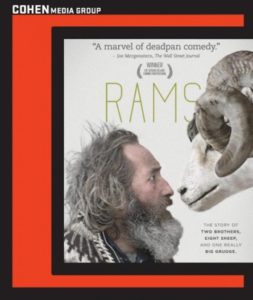 It’s a good year for animal movies, and I don’t mean The Secret Life of Pets. There was The Lobster, and there is, from Cohen Media Group, Rams, a comic gem from Iceland about two elderly brothers, renowned shepherds, whose long estrangement is obliged to end when disease threatens the sheep that are the lifeblood of their valley. Winner of the Cannes Film Festival’s “Un Certain Regard” prize last year, it’s quite a funny movie in its low-key way, and surprisingly poignant, too, as the set-in-their-ways brothers have to rekindle their bond. Director GrÁmur HÁ¡konarson shares a few thoughts in an interview and the disc includes his fine short, Wrestling. Speaking of Cannes, one of the more notorious Palme d’Or winners, Maurice Pialat’s Under the Sun of Satan (1987), has survived the boos and catcalls of yesteryear to emerge as a rigorous, unconventional, but fascinating story of grace under extreme pressure, as a priest (Gerard Depardieu) tries to free a young murderess (Sandrine Bonnaire) from the devil’s grip. Not an Exorcist film, it does exert its own idiosyncratic spell, and Depardieu, cinematographer Willy Kurant, and production designer Katia Wyszkop contribute interviews as to how Pialat (whose work Cohen is revisiting) cast his strange magick.
It’s a good year for animal movies, and I don’t mean The Secret Life of Pets. There was The Lobster, and there is, from Cohen Media Group, Rams, a comic gem from Iceland about two elderly brothers, renowned shepherds, whose long estrangement is obliged to end when disease threatens the sheep that are the lifeblood of their valley. Winner of the Cannes Film Festival’s “Un Certain Regard” prize last year, it’s quite a funny movie in its low-key way, and surprisingly poignant, too, as the set-in-their-ways brothers have to rekindle their bond. Director GrÁmur HÁ¡konarson shares a few thoughts in an interview and the disc includes his fine short, Wrestling. Speaking of Cannes, one of the more notorious Palme d’Or winners, Maurice Pialat’s Under the Sun of Satan (1987), has survived the boos and catcalls of yesteryear to emerge as a rigorous, unconventional, but fascinating story of grace under extreme pressure, as a priest (Gerard Depardieu) tries to free a young murderess (Sandrine Bonnaire) from the devil’s grip. Not an Exorcist film, it does exert its own idiosyncratic spell, and Depardieu, cinematographer Willy Kurant, and production designer Katia Wyszkop contribute interviews as to how Pialat (whose work Cohen is revisiting) cast his strange magick.
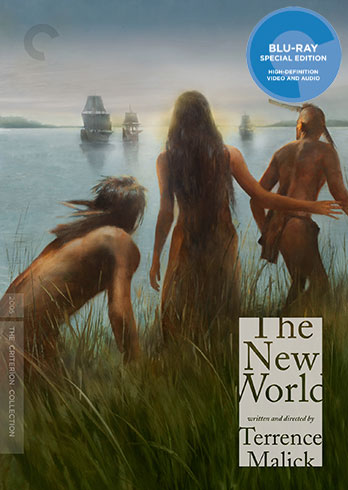 Criterion Collection releases have run the gamut this year, from the home video reclamation of Edward Yang’s splendid, epic-length, hard to see A Brighter Summer Day (1991) to a definitive edition of The Manchurian Candidate (1962), the one candidate everyone can agree on this wretched election season. Angela Lansbury, bless her, contributes a fresh interview.
Criterion Collection releases have run the gamut this year, from the home video reclamation of Edward Yang’s splendid, epic-length, hard to see A Brighter Summer Day (1991) to a definitive edition of The Manchurian Candidate (1962), the one candidate everyone can agree on this wretched election season. Angela Lansbury, bless her, contributes a fresh interview.
The late Arthur Hiller had his share of hits and misses, but no film of his is more beloved than The In-Laws (1979), with its peerless teaming of Peter Falk and Alan Arkin and “serpentine” comic plotting. Hiller and the two stars converse with screenwriter Andrew Bergman on a commentary track ported over from a prior DVD, but you also get to hear from Arkin and some of the film’s other co-stars, like the terrific James Hong.
The New World is an incredible package, with all three cuts of Terrence Malick’s 2005 telling of the story of John Smith (Colin Farrell) and Pocahontas (Q’orianka Kilcher) assembled. I saw the 150-minute version at a critic’s screening, which seemed to vanish in favor of the 136-minute release some time later. A 172-minute extended cut also surfaced, and visually is the knockout of the bunch, with an awesome 4k remastering. Stunning. Once you’ve experienced the most Malick, however, I’d stick with the one I first saw, which strikes the right balance between rushing things and too much meditative cinema. The movie was a bit of a letdown in 2005, too dreamy and opaque–but compared to Malick’s subsequent films, it’s as plot-heavy as an airport bestseller, and the central relationship (there is a second major character in Pocahontas’ life, played by Christian Bale) gives you something to hang onto amidst all that savage beauty in the nascent colonies. Each transfer is housed in its own disc, and there are abundant supplements detailing the performances (the two stars, who are reuniting in a new film, Hostiles, are interviewed), the rich production detail, the editing process, and how and why the different versions came to be. In short, quintessential Criterion.
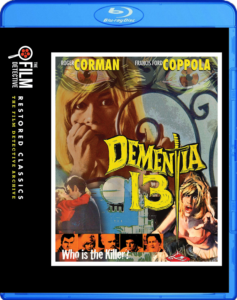 The Film Detective has released the best edition yet of Francis Ford Coppola’s horripilating Dementia 13 (1963), the most accomplished of his no-budget features before the studios beckoned. (Backed by his wine profits rather than Roger Corman, he’s returned to his roots, and his most recent “selfie,” Twixt, brings him back to horror.) After an unnerving beginning, the movie becomes a more conventional “reading of the will” thriller in the then-popular Psycho vogue, enlivened by occasional axe murders. But shooting in an Irish castle, Coppola demonstrates an eye for filming mayhem, and the 75 minutes go by briskly. A previous Film Chest release of what had been a public domain eyesore had a couple of extras and better cover art, but this Blu-ray has an improved all-around transfer (1.78:1 aspect ratio).
The Film Detective has released the best edition yet of Francis Ford Coppola’s horripilating Dementia 13 (1963), the most accomplished of his no-budget features before the studios beckoned. (Backed by his wine profits rather than Roger Corman, he’s returned to his roots, and his most recent “selfie,” Twixt, brings him back to horror.) After an unnerving beginning, the movie becomes a more conventional “reading of the will” thriller in the then-popular Psycho vogue, enlivened by occasional axe murders. But shooting in an Irish castle, Coppola demonstrates an eye for filming mayhem, and the 75 minutes go by briskly. A previous Film Chest release of what had been a public domain eyesore had a couple of extras and better cover art, but this Blu-ray has an improved all-around transfer (1.78:1 aspect ratio).
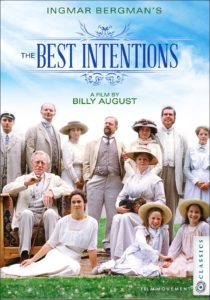 Film Movement puts out an array of eclectic new releases each month, and what can I say I’m immediately drawn to the ones that promise nudity. Taking my mind out of the gutter, I note three foreign films of interest, all in excellent Blu-ray editions. Winner of a less controversial Palme d’Or in 1992, Bille August’s lengthy and engrossing The Best Intentions, from a screenplay by Ingmar Bergman, is essentially the story of his parents’ turbulent marriage, ending with Bergman’s birth. Cannes Best Actress winner Pernilla August plays “Bergman’s” mother, and Bergman regular Max von Sydow is cast as her disapproving father. Dutch filmmaker Marleen Gorris was the first woman to direct an Oscar-winning foreign-language film, and Antonia’s Line (1995), a “feminist fairy tale,” is playfully magic realist, with a generation of women (the elderly Antonia’s “line”) making do with, and without, the exasperating men in their sheltered community. The first Jordanian film to be nominated for a foreign-language Oscar, Theeb (2014), set in the First World War era, is the gripping saga of a Bedouin boy’s desert survival as the Ottoman Empire totters. The striking adventure is accompanied by a commentary from director Naji Abu Nowar.
Film Movement puts out an array of eclectic new releases each month, and what can I say I’m immediately drawn to the ones that promise nudity. Taking my mind out of the gutter, I note three foreign films of interest, all in excellent Blu-ray editions. Winner of a less controversial Palme d’Or in 1992, Bille August’s lengthy and engrossing The Best Intentions, from a screenplay by Ingmar Bergman, is essentially the story of his parents’ turbulent marriage, ending with Bergman’s birth. Cannes Best Actress winner Pernilla August plays “Bergman’s” mother, and Bergman regular Max von Sydow is cast as her disapproving father. Dutch filmmaker Marleen Gorris was the first woman to direct an Oscar-winning foreign-language film, and Antonia’s Line (1995), a “feminist fairy tale,” is playfully magic realist, with a generation of women (the elderly Antonia’s “line”) making do with, and without, the exasperating men in their sheltered community. The first Jordanian film to be nominated for a foreign-language Oscar, Theeb (2014), set in the First World War era, is the gripping saga of a Bedouin boy’s desert survival as the Ottoman Empire totters. The striking adventure is accompanied by a commentary from director Naji Abu Nowar.
 You want stars? Lionsgate has them. OK, a waxen John Travolta seeking revenge in the well-worn I Am Wrath doesn’t shine too brightly. But in a “face off” for career cred the twisty neo-noir The Trust is a welcome step up for the equally troubled Nicolas Cage, as he and fellow Las Vegas cop Elijah Wood attempt to pilfer ill-gotten gains from drug dealers, with unfortunate results. (Bonus star: Jerry Lewis, as Cage’s father.) Green Room deserved more of a chance in theaters than it got but it makes for diverting, shock-packed entertainment in your TV room, and the disc has a commentary from director Jeremy Saulnier. Patrick Stewart and the late (alas) Anton Yelchin square off in a tense and sweaty thriller. In a recent interview, Brian De Palma said that Tom Tykwer’s adaptation of David Eggers’ book A Hologram for the King was his favorite movie of the year to date. I’m a little fuzzy on that, but it’s a thoughtful and wryly humorous story with a finely frazzled Tom Hanks (from the director’s Cloud Atlas) as a businessman peddling teleconferencing equipment to a Mideast potentate.
You want stars? Lionsgate has them. OK, a waxen John Travolta seeking revenge in the well-worn I Am Wrath doesn’t shine too brightly. But in a “face off” for career cred the twisty neo-noir The Trust is a welcome step up for the equally troubled Nicolas Cage, as he and fellow Las Vegas cop Elijah Wood attempt to pilfer ill-gotten gains from drug dealers, with unfortunate results. (Bonus star: Jerry Lewis, as Cage’s father.) Green Room deserved more of a chance in theaters than it got but it makes for diverting, shock-packed entertainment in your TV room, and the disc has a commentary from director Jeremy Saulnier. Patrick Stewart and the late (alas) Anton Yelchin square off in a tense and sweaty thriller. In a recent interview, Brian De Palma said that Tom Tykwer’s adaptation of David Eggers’ book A Hologram for the King was his favorite movie of the year to date. I’m a little fuzzy on that, but it’s a thoughtful and wryly humorous story with a finely frazzled Tom Hanks (from the director’s Cloud Atlas) as a businessman peddling teleconferencing equipment to a Mideast potentate.
(Want more stars? Try Jesse Eisenberg, temporarily sprung from movie jail after Batman v Superman, contending with family strife after the death of mother Isabelle Huppert in Louder Than Bombs, which fortunately for him, after those Lex Luthor histrionics, isn’t. Or Casey Affleck, earning raves on the festival circuit with Manchester by the Sea, as the would-be fall guy in an intricate plot involving Kate Winslet’s heavily accented Russian mafiosess, in Triple 9.)
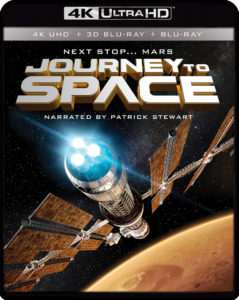 Shout Factory, I can’t even. Too much going on here: Horror movies from division Scream Factory, and 80s classics Midnight Run and The Adventures of Buckaroo Banzai as the first entrants in a new line, Shout Selects. I’ll get to them. Plus TV (the excellent 1980 adaptation of A Tale of Two Cities and Freaks and Geeks on Blu-ray, and the first season of the still-trenchant Lou Grant on DVD) and an eclectic assortment of movies on Blu-ray: the entertaining Sensurround cop/disaster movie Rollercoaster (1977), Chuck Barris in the insane Gong Show Movie (1980), Rob Lowe and James Spader sparring in Bad Influence (1990), and Rogue One co-star Donnie Yen in one of his Hong Kong martial arts adventures, Bodyguards and Assassins (2011). But the big news is that the company has leapt ahead of the pack with 4k UHD titles, for those newfangled home theater setups that management hasn’t purchased for me yet. (Hint, hint.) But the “giant screen” documentaries offered can still be enjoyed on regular Blu-ray discs, and if you have 3D at home (count me in)–well, prepared to dazzled by some sensational viewing. Patrick Stewart narrates Journey to Space, which takes you to the International Space Station for some eye-popping vistas, while Humpback Whales–well, it’s humpback whales, all but leaping out of the screen, as they’re observed in the waters off Alaska, Hawaii, and Tonga. Being knocked out by titles like these, in the most deluxe formats, is why we get into home theater, and why we rebuild our home theaters after misfortune. Something to “shout” about indeed.
Shout Factory, I can’t even. Too much going on here: Horror movies from division Scream Factory, and 80s classics Midnight Run and The Adventures of Buckaroo Banzai as the first entrants in a new line, Shout Selects. I’ll get to them. Plus TV (the excellent 1980 adaptation of A Tale of Two Cities and Freaks and Geeks on Blu-ray, and the first season of the still-trenchant Lou Grant on DVD) and an eclectic assortment of movies on Blu-ray: the entertaining Sensurround cop/disaster movie Rollercoaster (1977), Chuck Barris in the insane Gong Show Movie (1980), Rob Lowe and James Spader sparring in Bad Influence (1990), and Rogue One co-star Donnie Yen in one of his Hong Kong martial arts adventures, Bodyguards and Assassins (2011). But the big news is that the company has leapt ahead of the pack with 4k UHD titles, for those newfangled home theater setups that management hasn’t purchased for me yet. (Hint, hint.) But the “giant screen” documentaries offered can still be enjoyed on regular Blu-ray discs, and if you have 3D at home (count me in)–well, prepared to dazzled by some sensational viewing. Patrick Stewart narrates Journey to Space, which takes you to the International Space Station for some eye-popping vistas, while Humpback Whales–well, it’s humpback whales, all but leaping out of the screen, as they’re observed in the waters off Alaska, Hawaii, and Tonga. Being knocked out by titles like these, in the most deluxe formats, is why we get into home theater, and why we rebuild our home theaters after misfortune. Something to “shout” about indeed.
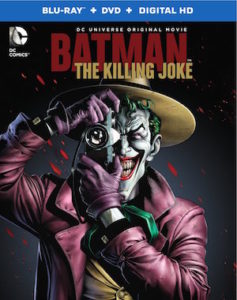 There’s no end to what Warner Bros. is bringing out, either: the legendary miniseries Roots (1977), presented in its fullest length and most perfect edition on Blu-ray, and, also on Blu-ray, the stodgier contemporary mini 11.23.63, a slow-paced if always somewhat intriguing Stephen King adaptation, with James Franco going back in time to stop the Kennedy assassination. But the action is in superheroes. The company can’t seem to get anything good going at the movies with its “DC universe”; on TV, however, with less familiar characters, it excels. Not Gotham, which I sampled simply for its (good) Mr. Freeze arc in its second season; I love the guy, and enjoyed Nathan Darrow’s remorseless portrayal on the show, and I was done when the show was done with him. I can’t get into it. Meanwhile, the company’s long-standing animated line, which is far from filler between movies, released one its more ambitious projects, Batman: The Killing Joke. Giving Batgirl a moment in the sun, then segueing into the Joker’s origin story, it’s uneven (the two halves, the first invented for the project, don’t sync) and the house animation style is too clean and tidy for the scummy awfulness of the tale. Still, worthwhile, and Kevin Conroy and Mark Hamill as the voices of Batman (never Bruce Wayne here) and the Joker remain definitive.
There’s no end to what Warner Bros. is bringing out, either: the legendary miniseries Roots (1977), presented in its fullest length and most perfect edition on Blu-ray, and, also on Blu-ray, the stodgier contemporary mini 11.23.63, a slow-paced if always somewhat intriguing Stephen King adaptation, with James Franco going back in time to stop the Kennedy assassination. But the action is in superheroes. The company can’t seem to get anything good going at the movies with its “DC universe”; on TV, however, with less familiar characters, it excels. Not Gotham, which I sampled simply for its (good) Mr. Freeze arc in its second season; I love the guy, and enjoyed Nathan Darrow’s remorseless portrayal on the show, and I was done when the show was done with him. I can’t get into it. Meanwhile, the company’s long-standing animated line, which is far from filler between movies, released one its more ambitious projects, Batman: The Killing Joke. Giving Batgirl a moment in the sun, then segueing into the Joker’s origin story, it’s uneven (the two halves, the first invented for the project, don’t sync) and the house animation style is too clean and tidy for the scummy awfulness of the tale. Still, worthwhile, and Kevin Conroy and Mark Hamill as the voices of Batman (never Bruce Wayne here) and the Joker remain definitive.
But: I love what the CW has done with DC. True, I gave up on Arrow, which was firing blanks in its fourth season. Yet I can still revisit Oliver and Diggle and Felicity and the gang via its outstanding crossovers, which help make The Flash, my favorite of the channel’s offerings, even more fun. Characters from both shows crossed over into its latest vehicle, DC’s Legends of Tomorrow, which has potential that I trust Season 2 will unlock. It may have been the dull villain and revenge-across-time plot that slowed things, or the lovestruck winged immortals on the team, who flew off somewhere at the end of the season finale. There’s a lot to like here, with a David Niven-ish Arthur Darvill, Caity Lotz, Victor Garber, Brandon Routh, and the great teaming of Wentworth Miller and Dominic Purcell to look forward to once more, with better scripts. (The Blu-rays of all these titles are superlative, minus those pesky commercials and laden with commentaries, gag reels, etc.)
 And then there’s Supergirl, in a class by herself. Melissa Benoist more than held her own as the girl in Whiplash, and I knew good things were in store. She’s the girl again–and what a girl, the superheroine of my dreams, embodying every positive quality (and understandable conflict) that the movies have somehow gotten away from in all that gloom. It’s a sunny show, optimistic and often funny despite the requisite heartache and constant threats, and I adored it from beginning to end. I swooned when The Flash, played by Benoist’s fellow Glee alum Grant Gustin, streaked by for a visit, in an episode that ended with a great cliffhanger. (Of course I was already swooning, as my Broadway squeeze Laura Bennati was playing a dual role.) There’s plenty of action, and a considerable heart supplied by the Devil Wears Prada machinations of Supergirl’s boss, played by Calista Flockhart. The two are sisters under the cape.
And then there’s Supergirl, in a class by herself. Melissa Benoist more than held her own as the girl in Whiplash, and I knew good things were in store. She’s the girl again–and what a girl, the superheroine of my dreams, embodying every positive quality (and understandable conflict) that the movies have somehow gotten away from in all that gloom. It’s a sunny show, optimistic and often funny despite the requisite heartache and constant threats, and I adored it from beginning to end. I swooned when The Flash, played by Benoist’s fellow Glee alum Grant Gustin, streaked by for a visit, in an episode that ended with a great cliffhanger. (Of course I was already swooning, as my Broadway squeeze Laura Bennati was playing a dual role.) There’s plenty of action, and a considerable heart supplied by the Devil Wears Prada machinations of Supergirl’s boss, played by Calista Flockhart. The two are sisters under the cape.
Supergirl proved too rich for CBS’ blood, and its fate hung in the balance until the CW swooped in and, hooray, put it on its fall schedule. Goodbye L.A., hello Vancouver, I assume, and apparently Flockhart will be more of an occasional guest. I can live with the changes, especially now that Superman will be appearing and another Flash crossover has been announced, with the two of them–as cute as puppies, as determined as pitbulls–getting to sing. Is it fall yet?
 Crazy Asian stuff from Well Go USA Entertainment is highlighted by the in-name-only sequel Kill Zone 2, which “continues” a movie where everyone died by recycling an actor or two and the basic concept, and cranking the whole thing up to 11 or 12. An undercover cop with a monkey on his back is out to break up an organ smuggling ring as the action shuttles between Hong Kong and Thailand, getting more violent and gaudy with each action scene (martial arts master Tony Jaa stars) until the whole thing goes insane in the top floor of a luxury medical center. I wish I’d seen it in 3D, but it’s so over the top it feels like three dimensions. Mojin: The Lost Legend is a lesser Tomb Raider-type story and Rise of the Legend contrives, none too interestingly, an origins story for the heroic Wong Fei Hung (of the Once Upon a Time in China movies that made Jet Li a star); still, it has the great Sammo Hung as an opium kingpin, still busting the moves that made him famous in his 20s as a senior citizen. And The Midnight After is unsettling, off-kilter, semi-satirical fun about a city bus that exits a tunnel and enters into a Hong Kong where everyone has disappeared. Kind of like these columns in recent months, but there’s light at the end of my tunnel anyway.
Crazy Asian stuff from Well Go USA Entertainment is highlighted by the in-name-only sequel Kill Zone 2, which “continues” a movie where everyone died by recycling an actor or two and the basic concept, and cranking the whole thing up to 11 or 12. An undercover cop with a monkey on his back is out to break up an organ smuggling ring as the action shuttles between Hong Kong and Thailand, getting more violent and gaudy with each action scene (martial arts master Tony Jaa stars) until the whole thing goes insane in the top floor of a luxury medical center. I wish I’d seen it in 3D, but it’s so over the top it feels like three dimensions. Mojin: The Lost Legend is a lesser Tomb Raider-type story and Rise of the Legend contrives, none too interestingly, an origins story for the heroic Wong Fei Hung (of the Once Upon a Time in China movies that made Jet Li a star); still, it has the great Sammo Hung as an opium kingpin, still busting the moves that made him famous in his 20s as a senior citizen. And The Midnight After is unsettling, off-kilter, semi-satirical fun about a city bus that exits a tunnel and enters into a Hong Kong where everyone has disappeared. Kind of like these columns in recent months, but there’s light at the end of my tunnel anyway.





Comments